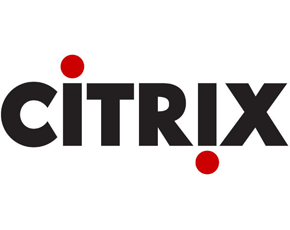Windows as a service Citrix helps SMEs cope with proliferation and remote support Citrix's position in an evolving and competitive market Virtual Microsoft Widows: A hostage to fortune? Budgets remain tight at enterprise end of market
Desktop virtualisation company Citrix is attempting to capitalise on the growth of cloud and mobility with its latest series of announcements. But can it stay ahead in an increasingly competitive market?
"Mobile and cloud-style services will support growth into the future," Citrix CEO Mark Templeton told Computer Weekly at the annual Citrix Synergy conference in Barcelona.

"The world has become more fragmented and heterogeneous and getting more so because of consumerisation. Our strategy is about social, collaboration, data sharing, mobility, Windows as a service and cloud platforms."
Windows as a service
The company unveiled its "Excalibur" and "Merlin" releases as part Citrix's "Project Avalon" launched earlier this year.
Citrix's Project Avalon aims to deliver Windows apps and desktops as a service via the cloud to any enabled device.
"We have a vision to turn Windows into a truly cloud service," said Templeton.
Citrix helps SMEs cope with proliferation and remote support
Citrix recently made moves into the mobile and cloud market. In June 2011, Citrix bought mobile data and video optimisation company Bytemobile, in an attempt to reach mobile operators. In September 2011, Citrix bought cloud-based service desk technology developer Beetil.
The Beetil acquisition was intended to boost Citrix's remote support with the GoToAssist application, which Citrix has now integrated into its portfolio.
Elizabeth Cholawsky, vice-president of IT support at Citrix, told Computer Weekly GoToAssist is designed to help small IT departments cope with the proliferation of different devices and applications they now need to support.
Cholawsky said Citrix has a 38% of global share in remote support.
"We've been that market for a long time," Cholawsky said.
"But two years ago we saw resurgence in the need for remote support, driven by trends enabling remote working."
The module can also run on all mobile devices. "The complexity of devices is putting more demand on the support for organisation, so the service desk module is designed to help make them more efficient. One customer said they reduced backlog by 20%," Cholawsky said.
Citrix's position in an evolving and competitive market
But Roy Illsley, analyst at Ovum, believes change is underway in the market. "Citrix needs an infusion at the strategy level. Mobile and cloud are not new, it needs to reinvent itself," Illsley said.
Citrix's rival VMware is ahead of Citrix in the server market, but VMware is also encroaching on to Citrix's position in the desktop virtualisation market.
VMware's Horizon suite, designed to help IT departments manage corporate assets on mobile devices such as Apple iOS, will be a serious competitor for Citrix.
"Citrix is losing the server market and the desktop is coming under increasing challenge," said Illsley.
"It still owns the desktop virtualisation space at the moment, as Horizon is not yet a product. And in a sense VMware has reinforced Citrix's value proposition, having copied its strategy. But Citrix needs to do more as Horizon will be out in January."
Virtual Microsoft Widows: A hostage to fortune?
There is also the question as to whether having such a strong tie with Windows is a wise move in the long term, with Google Android and Apple iOS likely to become much more dominant over the next ten years.
"It doesn't want to be stuck hanging off the back of Microsoft," said Illsley.
He said Citrix had made some good enhancements to its existing portfolio, recognising the need to work across clouds. But it is in need of a strong vision, to be backed up with some truly disruptive products.
"Now we have reached a point where we have virtual stacks with lock-in, as opposed to physical stacks with lock-in," said Illsley.
"Citrix needs to say it will break the lock-in and create mobility for the IT department."
Budgets remain tight at enterprise end of market
Richard Evans, analyst at Ovum, believes there is room growth for Citrix in the smaller enterprise market, an area which will probably be attracted by its service desk offering.
However, while larger companies are rethinking their approach to on-premise solutions, budgets are still tight, he said.
"The market is such there isn't a huge amount of money to spend on IT projects. Virtualisation can cut costs, but that requires time and money to put into place," Evans said.
"The challenge with larger organisations is migration." Citrix must work on creating a compelling message for the cash-strapped IT departments, he added.
Tony Lock, analyst at Freeform Dynamics, said educating customers on its existing products will be essential to Citrix's success, besides moving into new areas.
"The worst thing an IT department can do is to provide users with something that doesn't meet their needs, as that could puts them off the entire idea of desktop server virtualisation.
"Citrix needs to keep on telling people about the breadth of the solution and where they fit. And also the question of how you deal with different devices to access services. Using lots of operating platforms makes daily management difficult."
But with the supplier market shifting so quickly, Citrix cannot afford to take its eye off the ball for long. And with rival VMware catching up quickly, it is imperative Citrix's next set of announcements do more than simply enhance its existing offering.





